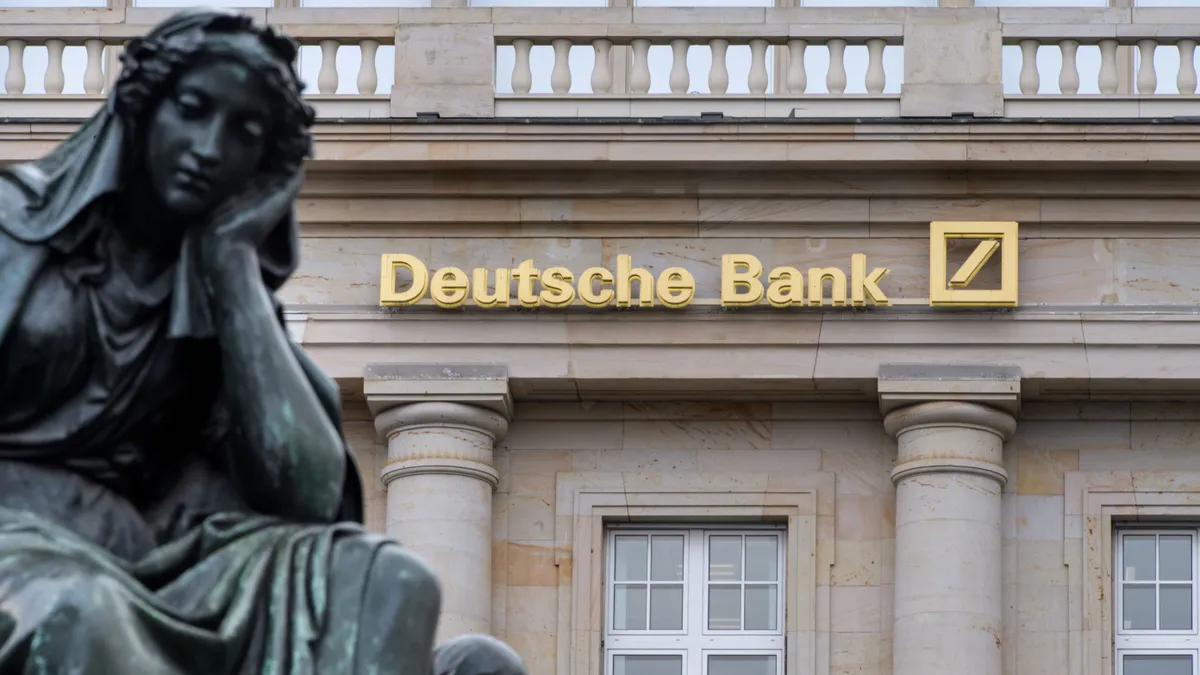Deutsche Bank has applied with regulators to operate a crypto custodian, CoinDesk reported Tuesday.
The move came on a day a previously announced U.S.-based crypto exchange, EDX Markets — launched by Charles Schwab, Fidelity Digital Assets and Citadel Securities — began trading, and days after asset manager BlackRock filed with the Securities and Exchange Commission to form a spot bitcoin exchange-traded fund.
“I can confirm that we applied for the BaFin license for crypto custody,” a Deutsche spokesperson told CoinDesk, referring to Germany’s financial regulator.
Deutsche Bank’s plans to develop a crypto custody platform were quietly announced in a December 2020 World Economic Forum report, in which the bank said it “aims to develop a fully integrated custody platform for institutional clients and their digital assets providing seamless connectivity to the broader cryptocurrency ecosystem.”
The bank, at the time, targeted “a minimum viable product in 2021 while exploring global client interest for a pilot initiative.”
In February 2021, however, a spokesperson declined to comment to CoinDesk, and the bank had since been mum on its ambition for crypto custody.
However, as of February, the bank’s asset management group DWS was in talks to buy minority stakes in crypto firms Deutsche Digital Assets and Tradias, according to Bloomberg.
EDX
Plans for EDX, meanwhile, were announced in September, two months before the downfall of FTX but not before the collapses of Celsius, Voyager Digital and the Terra/Luna ecosystem. Activity in the crypto sphere cooled after FTX’s spectacular collapse. Within the past month, the SEC has sued Coinbase and Binance for allegedly selling unregistered securities.
EDX said in September that it aimed to “meet the needs of the world’s largest and most sophisticated financial institutions.”
Months later, however, Acting Comptroller of the Currency Michael Hsu told Bloomberg that most banks’ crypto curiosity “went away” in 2022 as the value of tokens took a tumble. Hsu added that he’d be “astounded” if banks started expressing interest in the asset class now.
EDX’s launch seems to fly in the face of Hsu’s evaluation. On Tuesday, EDX CEO Jamil Nazarali, who took the role in August 2022 after four years as Citadel’s global head of business development, said in a prepared statement: “We are committed to bringing the best of traditional finance to cryptocurrency markets, with an infrastructure built by market experts to embed key institutional best practices. With the endorsement of our new and growing list of investors and customers, we’re proud to launch trading and look forward to further enhancements to our offering.”
EDX customers can trade bitcoin, ether, litecoin and bitcoin cash on the exchange. None of these assets were named “crypto asset securities” in the SEC’s lawsuits — which Peter Eberle, chief information officer of crypto investment management firm Castle Funds, told Banking Dive was a “very positive development” in regard to the regulatory landscape.
“The SEC did not list Bitcoin, Ethereum, and several others, giving institutions confidence that these will likely be treated as commodities like gold and other precious metals,” Eberle said.
Additionally, listing only these four coins is a “conservative strategy” and “should keep them out of the cross hairs of the SEC,” Eberle said.
BlackRock
As for BlackRock — whose announcement also may have surprised Hsu, if he feels the same way today as in December — the assets of its planned iShares Bitcoin Trust ETF are to "consist primarily of bitcoin held by a custodian on behalf of the Trust," according to the SEC filing. Coinbase will act as its custodian.
The SEC has previously rejected attempts by Grayscale, VanEck and WisdomTree to open spot bitcoin ETFs.
With more than $10 trillion in assets under management, however, BlackRock is the world's largest asset manager; and CoinDesk noted that “its CEO Larry Fink has political power to possibly match that of the SEC and its leader Gary Gensler.”
Eberle said traditional financial companies, or TradFi, like BlackRock and Deutsche Bank getting into the cryptosphere “will likely mean freedom [for crypto-native companies] to focus on innovation in the space as the SEC has finally laid out in its enforcement actions its priorities.”
Anthony Botticella, president of crypto custodian Aegis Trust, told Banking Dive that the entry of TradFi into the cryptosphere has the potential to “significantly contribute to the advancement of our industry.”
“Regulators are likely to view legacy financial institutions differently compared to fintech companies entering the crypto space, considering their track record of operating within regulated industries,” Botticella said. “Regulators may be more familiar with overseeing and interacting with these established institutions, which could lead to a more streamlined regulatory process.”
TradFi’s expertise and established networks could benefit crypto-native companies, leading to better developed infrastructure, security measures and market stability.
“Moreover, the participation of TradFi in the crypto industry adds a sense of legitimacy from a general public perspective,” Botticella said. “Their entry into the space can instill confidence in cryptocurrencies among a broader audience, which is crucial in driving mainstream acceptance and adoption."






















